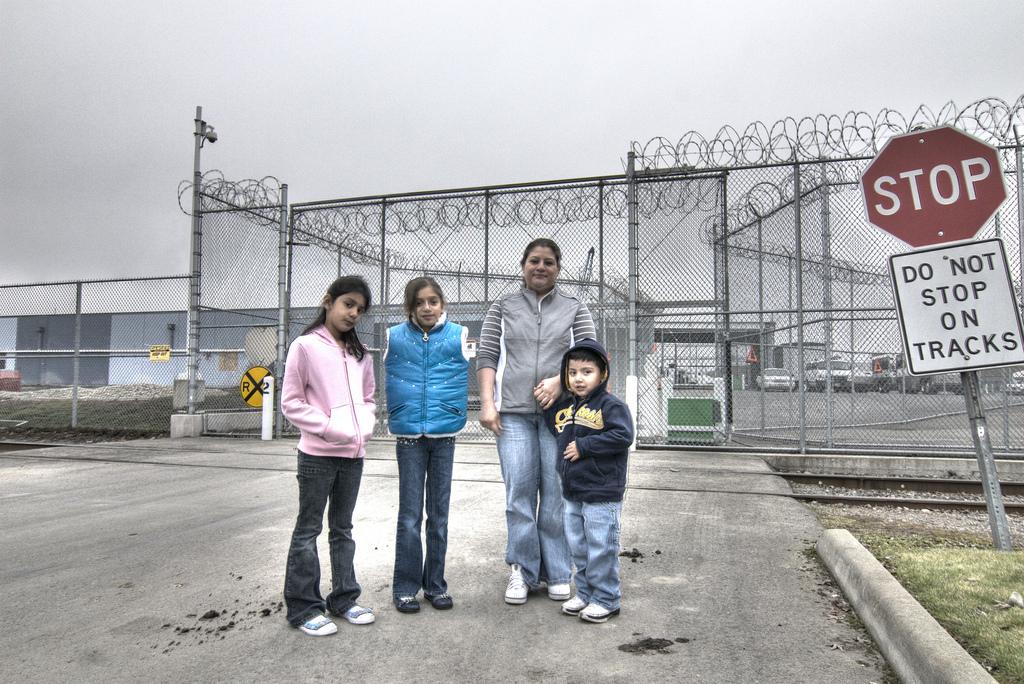A study conducted by the University of Toronto’s faculty of law, “Invisible Citizens: Canadian Children in Immigration Detention”, has shed light on the state of hundreds of children being held in immigration detention centres across Canada, and Canadian immigration lawyers are worried.
The Immigration and Refugee Protection Act gives authorities the power to detain permanent residents or foreign nationals for several reasons, such as if there are reasonable grounds to believe they are unlikely to appear for examination, an admissibility hearing, or removal from Canada order. As well as if they are considered inadmissible or a danger to the public.
Along with the parents, authorities can also detain their children, but “only as a measure of last resort” and only if it is in the best interests of the child. Detention centres house children that are foreign nationals, permanent residents, as well as Canadian citizens; the latter can be held as de facto detainees, if it is deemed to be in their best interest to remain there with their parents. The age of the children currently being held varies greatly, from infants, to toddlers, to school-aged children.
The University of Toronto’s study highlights that the conditions in the detention centres can cause children physical and psychological harm, as parents being held in immigration detention centres are not able to properly care for them in this environment. The children demonstrate a variety of symptoms including lack of interest in play, signs of depression, lack of sleep and lack of appetite, many of which subsisted even after release.
As a result, the study argues that the best interests of the children are not adequately accounted for, as required by law, in rendering decisions to detain children and that the children’s fundamental rights are being violated. Therefore, the study calls on the government to find alternatives to the detention of children, such as community housing initiatives. An approach to reduce the number of children in detention would be to allow families back into the community through community-based programs involving reporting obligations, national deposits, and guarantors.
Allowing the children back into the community while their parents remain in detention is not a viable solution for children faced with the prospect of detention; the study notes that separation from their parents has similar negative effects to being held in detention centres. Ultimately, the best interests of the children would be best served by allowing them to live in the community with their parents, but unfortunately, authorities do not consider the best interest of the child when rendering decisions to detain the parents.
The federal government has committed to revamping the legislative provisions regarding immigration detention, investigating new alternatives to child detention, and reducing the number of children being held. However, it has not yet moved forward in this regard, and critics are urging it to move faster. Critics, such as Canadian immigration lawyers, also mention the government’s current lack of transparency regarding the ongoing detention of children. They argue that the regime in place is highly detrimental to the children’s physical and psychological health, and that swift action should be taken accordingly.
Share this article
Arghavan Gerami
Arghavan Gerami is the Founder and Senior Counsel at Gerami Law Professional Corporation ('PC'), a full-service immigration law firm in Ottawa, Ontario. Since 2011, Ms. Gerami has focused her practice on immigration and refugee litigation. Prior to that, Ms. Gerami worked at the Ministry of Attorney General and the Department of Justice and had the privilege of serving the Honourable Mr. Justice M. Evans at the Federal Court of Appeal on immigration and administrative law appeals. Ms. Gerami contributes to the Immigration Law Section of the Canadian Bar Association, the Canadian Association of Refugee Lawyers, and the United Nations High Commissioner for Refugees. Ms. Gerami has also published numerous journal articles and presented at various immigration and refugee law conferences and events across Canada.

